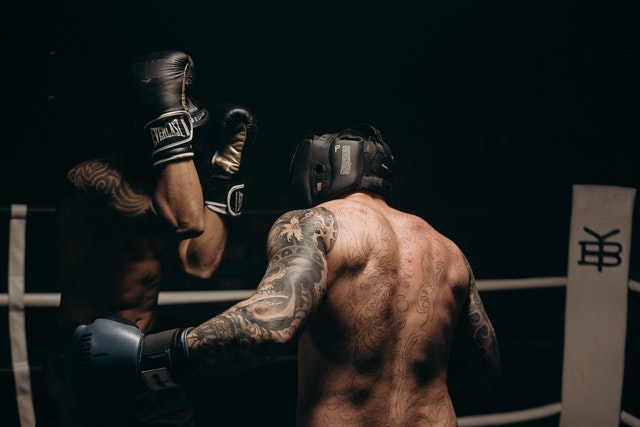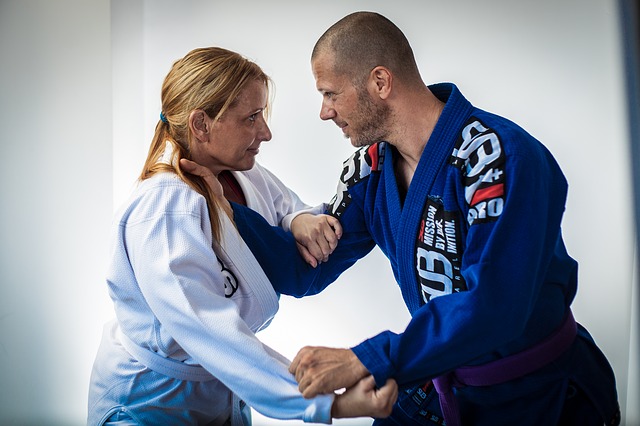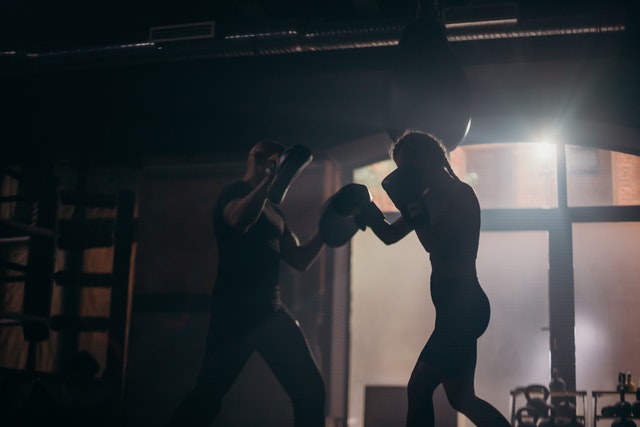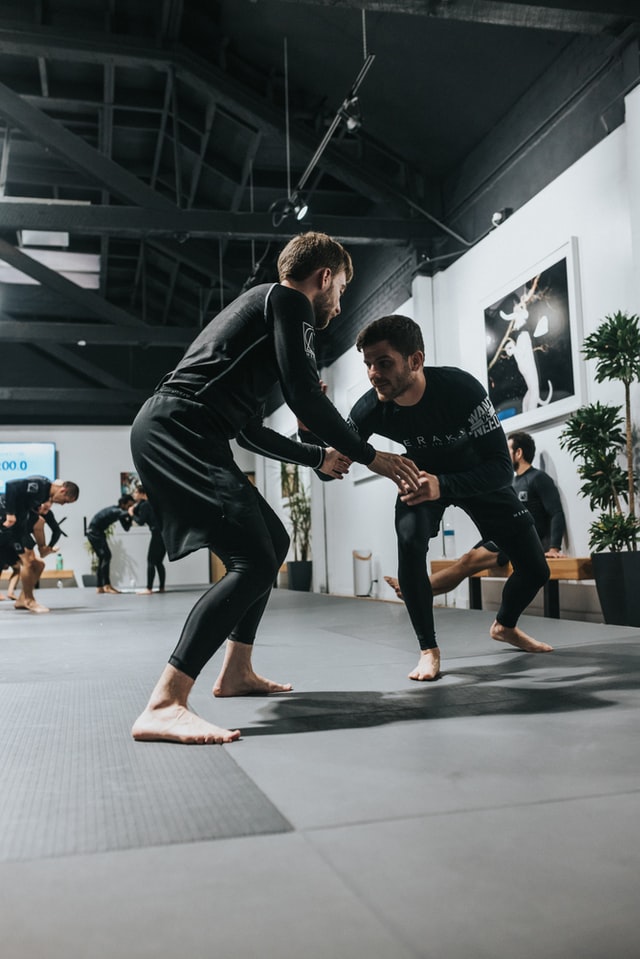BJJ vs Boxing for Self-Defense: Which one should you learn?
Learning martial arts is a great way to prepare yourself for situations that require self-defense. Boxing and Brazilian Jiu-Jitsu involve different forms of techniques – the former incorporates fists in attacking or defending, whereas BJJ focuses on timing, leverage, angle, and pressure. BJJ is ground-based, and Boxing requires an entirely standing position. Both of these martial arts have their own advantages. So, it becomes a hard nut to crack to decide which one will be the most suitable for self-defense – BJJ or Boxing? Our analysis will give you some insights on which should be your pick for protecting yourself when the need arises!
The Difference Between The Two
Boxing was first witnessed in the Sumerian carvings, where a sculpture showed boxers and spectators. Known as the “noble art,” boxing is predominantly fist striking based. It is one of the most widely practiced martial arts in the world. You need to use your closed fists to attack an opponent. Boxing rules allow you to hit the opponent at any point starting from the forehead to the beltline. You will be able to acquire distance management skills by mastering boxing.
On the contrary, Brazilian Jiu-Jitsu is dependent mostly on ground fighting techniques. Unlike Boxing that depends largely on striking, BJJ teaches you to grapple, which is very effective for self-defense. You will be able to defeat your enemies without seriously hurting them. You can take control of your opponents by taking them to the ground using strangulation or joint lock techniques.

Is BJJ Easier Than Boxing?
It really gets tough to declare any of these two martial arts as easier to learn than the other. Your ability to grasp any of them depends on your preference and skills.
People who prefer to fight standing in place will vote for Boxing. You only need your fists to focus on punching. While it is not a simple martial art, it involves lesser varieties of techniques compared to BJJ.
Jiu-Jitsu will require you to implement multiple techniques for pulling your opponent to the ground. It gets quite difficult in BJJ to make your enemy submit as you have to estimate every tiny step of the opponent. However in a self-defense context, training BJJ for just 6 months can already equip you with the necessary to submit a stronger and untrained opponent. You do not need to strike in Jiu-Jitsu but you will have to look for a wide range of things like – takedowns, different types of strangulations, throws, and many more. You will need to invest less time in learning Boxing than that of BJJ.
Even starters can grasp Boxing techniques by means of regular practice for a couple of months. On the other hand, learning BJJ is not an easy goal to achieve. You need to train for more than two years to get your blue belt and around 10 years to achieve your black belt in Jiu-Jitsu, from a sportive perspective, that is. From this rough comparison, it appears that learning Boxing might be slightly easier than Jiu-Jitsu. However, both of them demand long term dedication and hard work.

Pros and Cons of Boxing and BJJ
Training boxing will provide you with strength from legs and hips, which will enable you to throw punches. You will be able to hit your opponent without being hit in return. Your movement speed also needs to be increased to let yourself attack by predicting your opponent’s next moves. Learning boxing also has some drawbacks that keep you aloof from some necessary techniques. Boxing lessons will not teach you to grapple. If you have to encounter a sudden street fight, only using your fists will not be enough to defeat your opponent. You also do not learn how to throw kicks in boxing, which is a great deficiency when it comes to self-defense measures. Throwing kicks at certain moments of attack can be a lifesaver, but boxing does not make you learn this. In extreme cases, you might get your hand broken while hitting your opponent on the head. This has been the case even with some expert boxers where they have suffered from serious hand injuries.
Though Brazilian Jiu-Jitsu does not rely on striking like Boxing, it makes you learn how to grapple, which gives you a big edge in cases when you have to face an instant fight. That you can defeat your opponent without hurting him/her is a huge plus of Jiu-Jitsu. Jiu-Jitsu helps you learn to use your arm as protection against any attacker. If you can keep an adequate distance from your opponent, then your opponent will not be able to hit you back, giving you enough room to force him to the ground.
A major lacking in Jiu-Jitsu is that you do not learn striking, making you vulnerable to opponents at a close distance. It might not always be possible to keep a safe distance from your opponents. In cases like this, you will not be able to win by only defending yourself with your fists, making BJJ ineffective here.
Given all these advantages and disadvantages of BJJ and Boxing, how can we decide the more effective martial arts form for self-defense?

Better Self-Defense: BJJ or Boxing?
After all the analyses and comparisons, it is still tough to take a side. We wish to declare Brazilian Jiu-Jitsu the winner in terms of self-defense. This is not to underestimate Boxing as a martial art by any means, but it is to make it clear that Boxing is most effective when it is taken as an arranged competition like environment where boxers remain prepared to face each other. Jiu-Jitsu works better in cases of impromptu fighting conditions. It is very common in street fights that your opponents use grappling to bring each other to the ground.
When it comes to Boxing, the lack of grappling techniques will make you easy prey for your opponent. Jiu-Jitsu as a martial art came into existence with an aim to defend yourself from a potential attacker. Learning BJJ gives you the opportunity to curb the distance from your enemy and let yourself get rid of an attack from your opponent. A crucial point that makes Boxing lag behind Jiu-Jitsu in terms of self-defense is that boxers depend solely on fist strikes, and even an amateur can defeat you with reckless punching. Sudden fights mostly end up in the ground, and Jiu-Jitsu practitioners can make the most of such situations. There is no scope for inexperienced fighters to beat a blue belt in Jiu-Jitsu.

Bottom Line
Both Boxing and Brazilian Jiu-Jitsu are excellent martial art forms that have some specific benefits. The difference in techniques makes them suitable for different circumstances. Boxing is most effective when it is practiced as a form of competition, whereas BJJ gets the upper hand when a sudden conflicting situation arises. Our discussion announces BJJ is the more effective self-defense tool without undermining the usefulness of Boxing as a martial art. It is best if you can learn Mixed Martial Arts (MMA) techniques to protect yourself from unexpected attacks. For now, you can master the art of Brazilian Jiu-Jitsu to make safety a priority to yourself.

